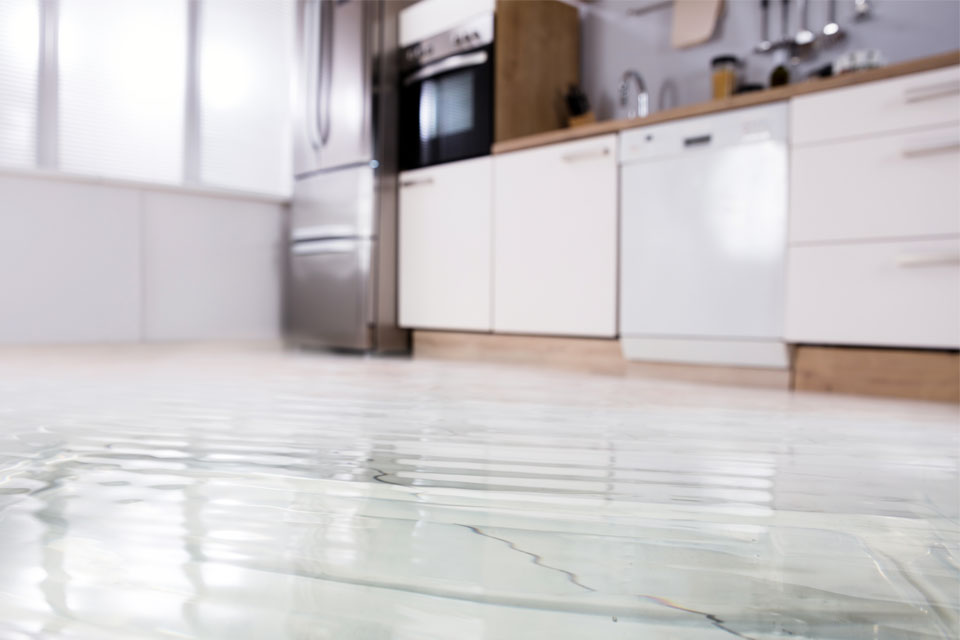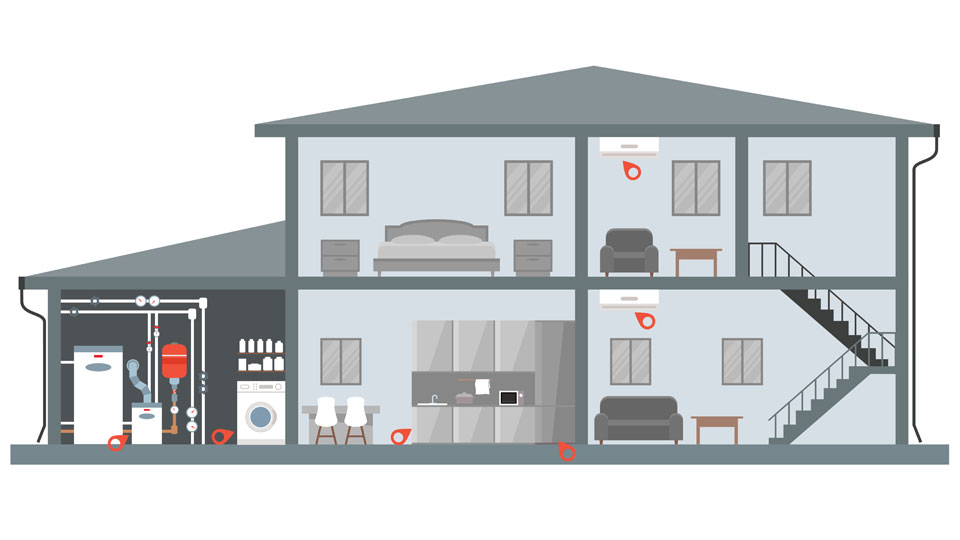How Water Leak Detectors Help Protect Your Home from Water Damage


Unbeknownst to you, unwanted water could be dripping, trickling, or pooling somewhere in your house right now. If this situation goes undetected for even a short time, it has the potential to cause significant damage to your home and belongings. To reduce the chance that a leak somewhere in your home goes unnoticed, you should strongly consider using water leak detection devices.
Water leak sensors are designed to detect and monitor moisture where it doesn’t belong. They typically alert you if water touches them, usually within seconds of detection, by sounding an alarm and flashing a red LED light. Some of these devices rely on bottom-mounted probes to sense water, while others have top-mounted probes that catch falling drips. Most of them also connect to a mobile app, so if a leak is detected, the app will send a text or a push notification, or sometimes both, to your mobile phone. Since not all water leak detectors have the same monitoring and warning capabilities, it’s important to carefully research what you are buying.
Some of the features a homeowner may want to investigate when comparing different water leak detector options for their home include the following:

Once you purchase your water leak detection devices, you’ll want to put them in a variety of spots in your home where water damage typically originates, such as:
In addition to using water leak sensors around your home, attaching a water flow monitor to your main plumbing line or water meter may provide an early warning of a potential leak. Over time, these flow monitors learn your home’s typical water usage patterns and notify you if abnormal usage or water flow is detected.
If a water leak detector or flow monitor does alert you to a problem, it’s critical to react quickly. Unless the issue is something that is simple to fix, you should shut down your home’s main water supply and call a licensed plumber. But sometimes immediately addressing a leak isn’t possible—for example, if you’re out of town when you receive an alert.
Homeowners who desire greater peace of mind may want to consider a more comprehensive whole-home water shutoff and leak detection system. These systems typically include a smart water shutoff valve connected to several leak detectors. When water flow is irregular or moisture is detected, the valve automatically shuts off the water supply to your home. Because these whole-home systems are so effective at catching both larger leaks and slower, smaller ones, installing one may make you eligible for a home insurance premium credit. Please contact your local insurance professional for more information about this potential discount.
There are many other steps a homeowner can take to prevent water leaks and damage. Implementing these precautions, along with using water leak detection devices, may help you avoid serious harm to your home and belongings.
Click on the Find an Agent button to search for independent insurance agencies near you.
Contact the independent insurance agency you would like to work with by phone or email.
Leave it up to your agent to uncover the best coverage solutions for your valuable property.